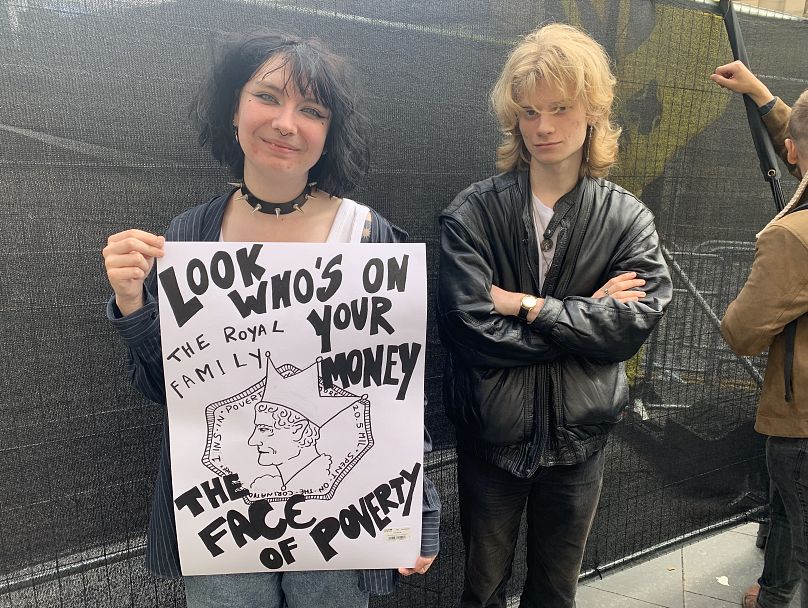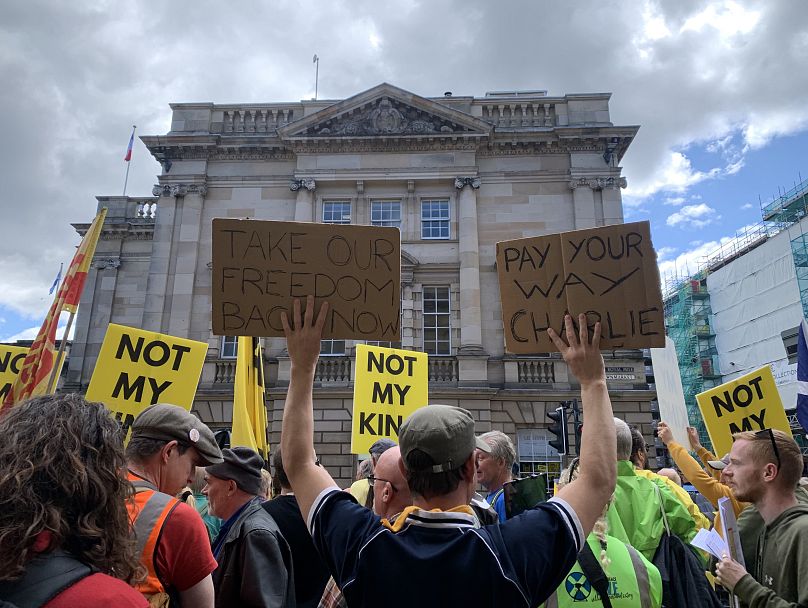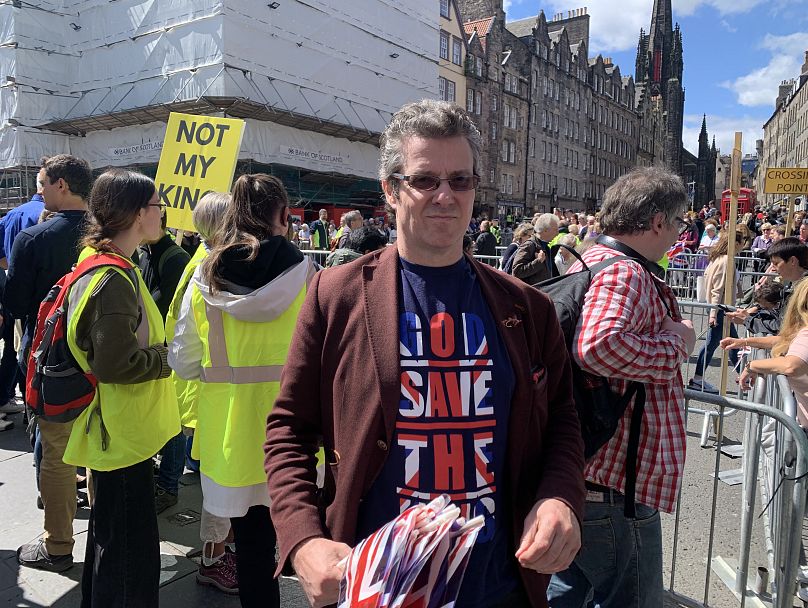Anti-monarchy activists and royal enthusiasts stood unhappily side-by-side at the king's Scottish coronation celebration
King Charles III’s visit to Edinburgh for a ceremony marking his coronation drew what must have been thousands to the city’s Royal Mile, more than a handful of them dedicated anti-monarchy protesters.
 ADVERTISEMENT
ADVERTISEMENT
 ADVERTISEMENT
ADVERTISEMENT
With national attitudes to the monarchy not exactly at an all-time high, the anti group – led by longtime campaign group Republic – were probably hoping to become the event’s second headline act. But based on the sound of their chanting and the visibility of their yellow “Not My King” placards, they were dwarfed by the rest of the crowd, and mostly packed together on a street corner near the top of the Royal Mile.
In the hours before Charles arrived, the ratio of protester-to-journalist within the tightly packed crowd was somewhere between 10:1 and 5:1, a sign that this midweek royal pageant wasn't attracting mass demonstrations. And at first, there was no sign of anything nasty in the air.
“There’s no-one looking for a fight,” said anti-monarchy protester Ian. “That was all down south for the coronation – it’s not really what we do here. I reckon those (pro-monarchy protesters) are just here to annoy us.”
Among the younger demonstrators was Evie, a soft-spoken punk band member in her twenties, who stood at the edge of the protest with a home-made sign focusing on her own issue of choice: poverty.
A Royal Mile resident herself, she explained that she’d held off protesting the Scottish coronation procession last year because she was worried about being arrested, but she seemed satisfied that this time, things would be on a more even keel.
“I think the police have learnt their lesson,” she said, alluding to the outcry after the arrest of Republic members at the coronation last autumn. “I’m not here as part of any particular group, I’m just here because of what I believe in.
“This isn’t what we should want our money spent on.”
Meanwhile, a few pro-monarchy protesters had shown up to offset the republican crowd. They had fewer placards, spent less time chanting, and mostly seemed to be enjoying the uncharacteristically blazing Scottish sun. But that’s not to say they didn’t know why they were there.
Alex, standing solo and grim-faced in a grey fleece with a plastic Union Jack about the size of an iPad in his hand, was matter-of-fact.
“I’m here because it’s a British institution,” he said without hesitation in a rough Scottish accent, “and we should be proud to be British.”
He’d been handed his flag by a quiet man wearing a t-shirt emblazoned with “GOD SAVE THE KING” in bold Union Jack-filled font. He agreed with Alex that he was there to celebrate Britishness, not just monarchy – and that the mood was on an even keel.
“We’ve all got a right to peaceful protest,” he said of the other side, not quite smiling and not quite scowling.
Even the most radical anti-Charles group were in an upbeat mood. Firmly embedded at the hardcore were Salvo, a group campaigning to "liberate" Scotland from the UK. They claim that the original 18th century Acts of Union that began stitching modern Britain together illegally obscured the Scottish constitution, and that the union therefore does not in fact legitimately exist.
It’s a radical argument that puts the group well outside the mainstream of pro-independence activism. They told me they are convinced that “the British state” is machinating to suppress them, but as they waited for the procession to begin, the group kept handing out pamphlets with a smile.
The detente between the two sides only started to fray when the procession began. As batches of military servicemen thumped their way down towards the protesters, someone on one side pushed someone on the other, and the shouting began.
One man pointed out the pusher to the police; another shouted at him, “You’re a grass!”, and still another accused someone else of assaulting somebody. This seemed to lift the lid on outrage, which began flowing from both sides.
The Salvo activists, who usually cultivate an air of earnestness in public, shouted at a “fat c**t” on the royalist side to bring in line their “knuckledraggers”, “wankers” and “a***lickers”.
The angrier royalists mostly directed their contempt toward the other side’s bodies. “Why don’t you shut up and let us enjoy our day?” shouted one professionally dressed man, smiling at his opponents. “All of you stink, most of you are ugly, why don’t you wash yourselves?”
Another was incensed to see the republican side booing the military. “Those are servicemen of this country,” he shouted in their general direction. “They’ve served so that you can stand there. You’re disgusting, absolutely disgusting.”
Yet as loud as the booing sounded, the procession was essentially uninterrupted. Edinburgh’s Old Town is overtouristed at the best of times, and the range of accents and languages lining the Royal Mile suggested that most of the city’s full-time residents had stayed at work.
Once Charles was out of his car and into the cathedral, most of the republicans and royalists alike began to waft away back to normality. Later in the afternoon, a few protesters were arrested after swearing at police officers – but no great flare-up was to be seen.
As a man on one side or the other muttered miserably over my shoulder: “It’s not much of a protest. Not like the French. They can really do it properly.”













